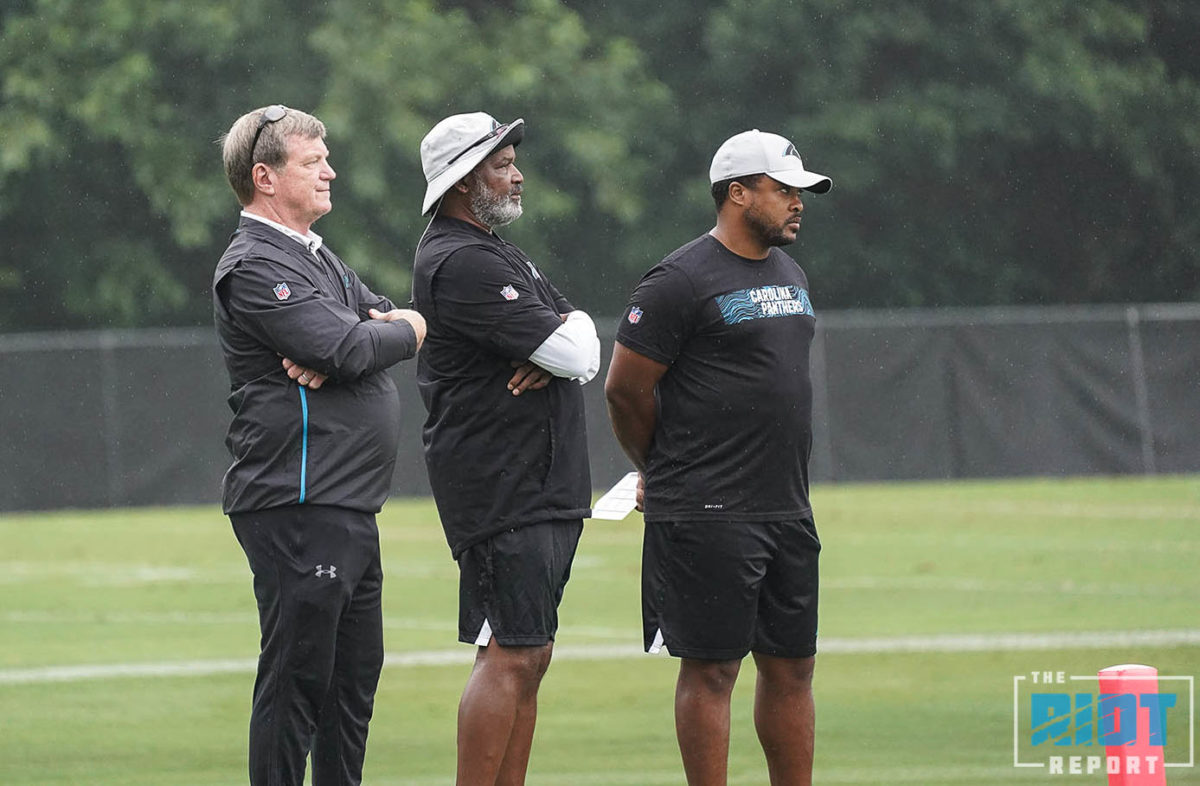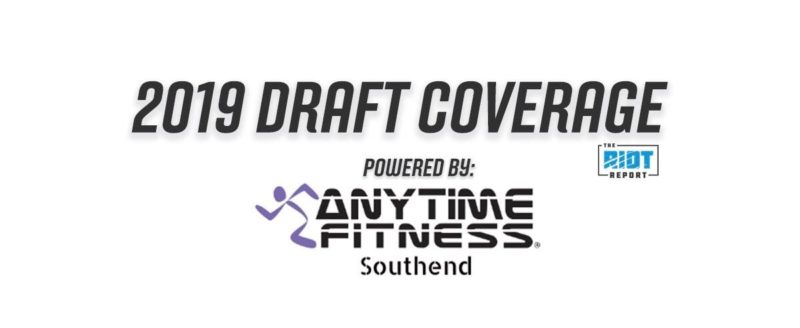Marty Hurney has been watching.
It’s not just the Pro Days for the past two months spread across the United States, from Pullman, Washington to watch Andre Dillard to Tallahassee, Florida to check out Brian Burns – and it’s not just the hours spent interviewing players at the scouting combine or poring over his draft board with Senior Director of College Scouting Jeff Morrow – and it’s certainly not just watching tape, even though that’s a huge part of it.
All the preparation has been leading up to three stress-filled days next week – because the more prepared you are, the less surprised you are on draft night.
“We’ve been thinking about it for a month and a half – we go over every scenario possible with our scouts, our coaching staff – we bring each position coach in with the coordinator with our scouts [and] we go over the whole board,” Hurney said at his pre-draft press conference. “Jeff Morrow and I talk constantly and then Ron and I talk constantly; Ron and I will meet with each coordinator and with Chase [Blackburn] and we’ll go over the board again.”
“I don’t think there’s a scenario that we won’t be ready for.”
Sometimes that involves trading up or down – they did both during last season’s draft. But the decision to trade up – as he famously did in 2009 when he swapped the Panthers’ 2010 first-rounder for the #19 pick, tackle Jeff Otah, who had an injury-plagued career and never lived up to his first-round billing.
Certainly not to the billing of two first-rounders.
“I think it all depends on your board and who’s there – you’d much rather trade back than up, to get extra picks,” said Hurney. “When you’re trading up, you’re giving away picks – but there are times that if you think a certain value is there, you make that decision, but it all depends on your board and that stack of players….if you get to your pick and you had five guys on your list and four are there, then maybe you talk about trading back. If [it’s] five picks ahead of you and nobody’s there, you could talk about trading up or you could talk about, do you trade back and get additional picks and get players that are still very good players that didn’t happen to be in your top five.”
“The whole key is maximizing value.”
Carolina Panthers GM Marty Hurney is here for #WSU Pro Day. Well, for Andre Dillard. Carolina has the 16th pick in the first round of the Draft. Think this emoji might be appropriate: 👀. pic.twitter.com/jKYAUPsSj9
— Theo Lawson (@TheoLawson_SR) April 3, 2019
Hurney, who evaluated players for an NFL team for 22 years before being let go in 2012 only to be re-hired by the Panthers five seasons later, likes going to games and practices throughout the college football season – because that’s where you get to see the college prospects comfortable in their own environment. He’ll then come back with a condensed list of prospects for Rivera to go through with traits he knows the coach is looking for; so when the pre-draft preparation begins in earnest once the Panthers’ season has concluded, Rivera is already up to speed and contribute to the conversation.
He’s not the only one.
Between Hurney, Rivera, Norv Turner, Eric Washington, Morrow and the rest of the coaching staff, there’s an even more energetic voice contributing to the draft conversation every day as new Panthers’ owner David Tepper keeps in constant communication with both Hurney and Rivera – Hurney said that Tepper spoke to them both every day while Rivera broadly nodded and smiled.
Tepper has said in the past that he doesn’t mind speaking his mind on the football side of things if he thinks there’s an issue.
“At the end of the day, the football guys will make their decisions, and you’ll voice your opinions,” Tepper said in February. “I think that if we have some things that look – you just want people to realize what are facts, that’s all. If you’re sitting and you’re looking at a team and the defense looks disjointed, you might voice that opinion of why that’s happening. If you have other opinions, you’ll voice some opinions on those things.”
So as the Panthers craft their draft board, they use every available resource – and that includes private visits with prospects, of which they only are allowed 30 by the NFL. For the second consecutive season, the Panthers have used 29 of those available visits, plus the “local pro day” where players from local colleges and who call this area their hometown. While it’s often to get an additional look at a player they like, it can sometimes be to gain extra medical information on a prospect they’re interested in but unsure about.
The Panthers have brought in players at multiple positions – from mid-round quarterbacks like Clayton Thorson and Jarrett Stidham to first-round tackles like Andre Dillard and Jawann Taylor; they’ve brought in corners and safeties and wide receivers – all to get a closer look.
The private visits can also be a continuation of scouting they’ve been doing for a while – the team will sometimes go through some plays and formations with a prospect at the scouting combine in February and then ask them to recall that information and draw it on a whiteboard during their private visit.
“The guys we bring in, we most certainly are considering,” said Rivera. “And it’s really an opportunity for us to get an opportunity to really mix it up with them and get a good positive feel as to who they are, in terms of what type of young man they are and what type of football player they are. I think that [the visits] are one of the most helpful things that you have going.”
“I thought the 29 guys we [brought] in, they were all solid.”



